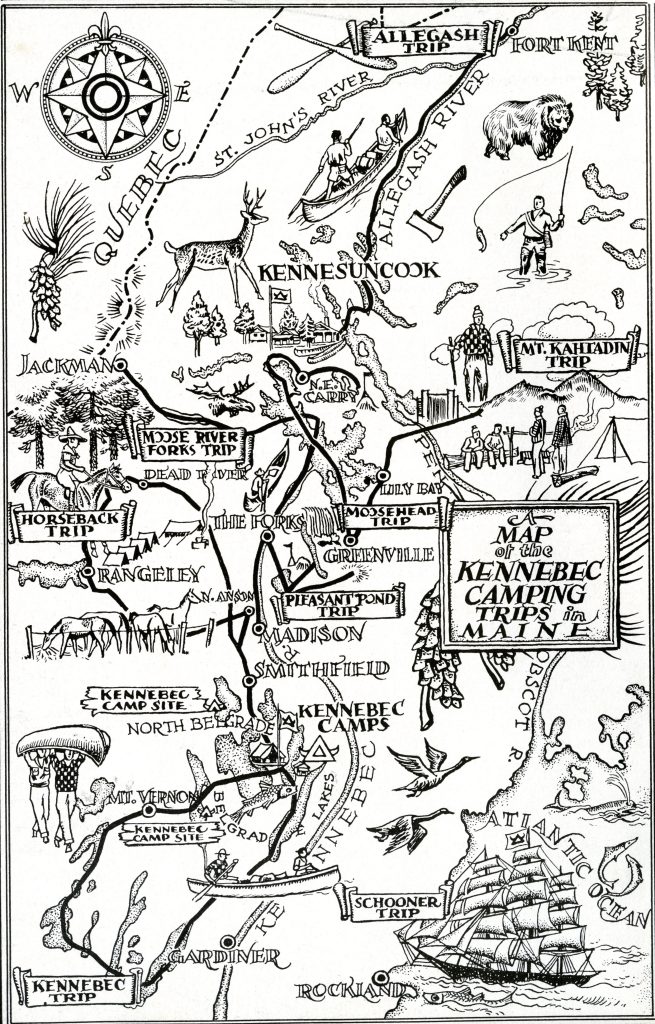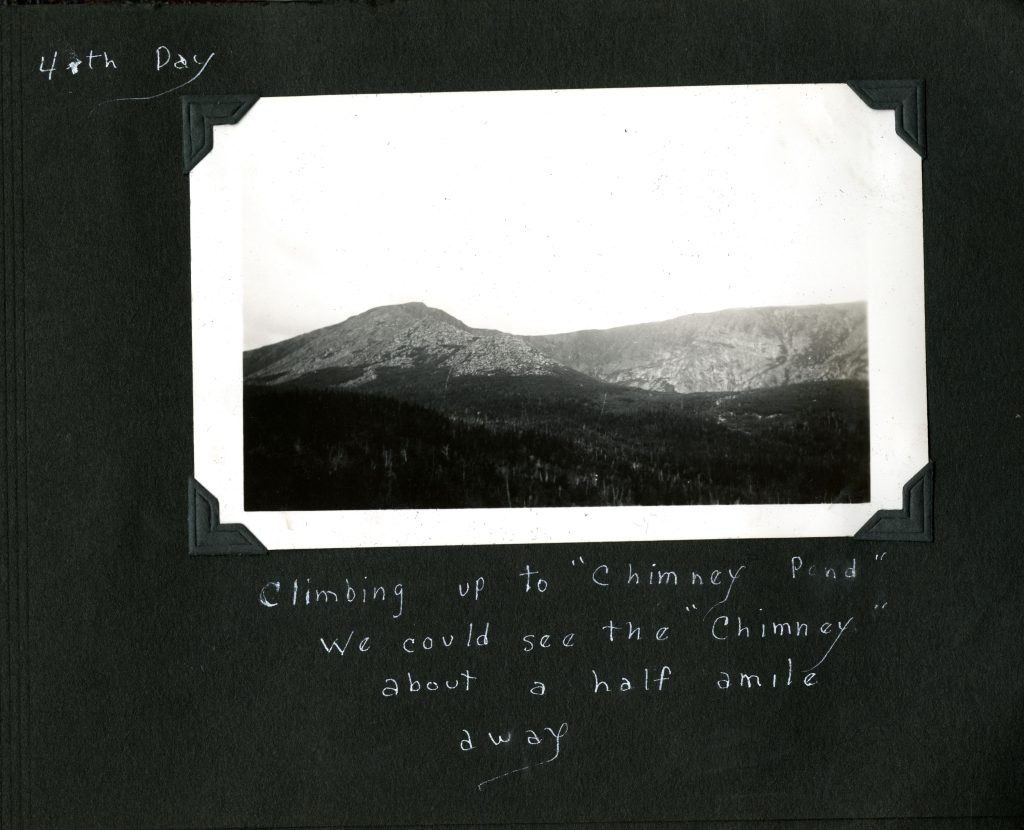In 1907, three Philadelphia natives opened Camp Kennebec, a summer camp for boys that reflected the robust masculinity and rugged independence of the Teddy Roosevelt era. Situated on Salmon Lake in North Belgrade, Maine, Camp Kennebec provided a means of recreation in the natural environment juxtaposed with the campers’ urban life in Northeastern and Mid-Western cities. Kennebec, opened during the pioneer days of organized camping, was dedicated to keeping the camping experience as natural and primitive as possible and promoting healthy competition through athletics and wilderness activities.
By the 1930s, Camp Kennebec had instituted camping trips to various outposts throughout the Maine wilderness. A mainstay of the Kennebec experience, these expeditions gave campers the opportunity to explore the landscape and test their skills. Among the campers of the 1938 camp season was Edward Block, described camera fiend and resident photographer. While at Kennebec, Block used photography to document his experiences and record activities including the annual trip to Mt. Katahdin, the highest mountain in Maine and the northern terminus of the Appalachian Trail. Over the course of the nine day expedition, Edward Block recorded the progress of their ascent to the summit and captured the natural beauty of Maine’s pristine environment.
A collection documenting Philadelphia campers’ time at the camp is now available for research in the Philadelphia Jewish Archives collections of the Special Collections Research Center. Start by reviewing the finding aid at http://library.temple.edu/collections/scrc/camp-kennebec-alumni.

